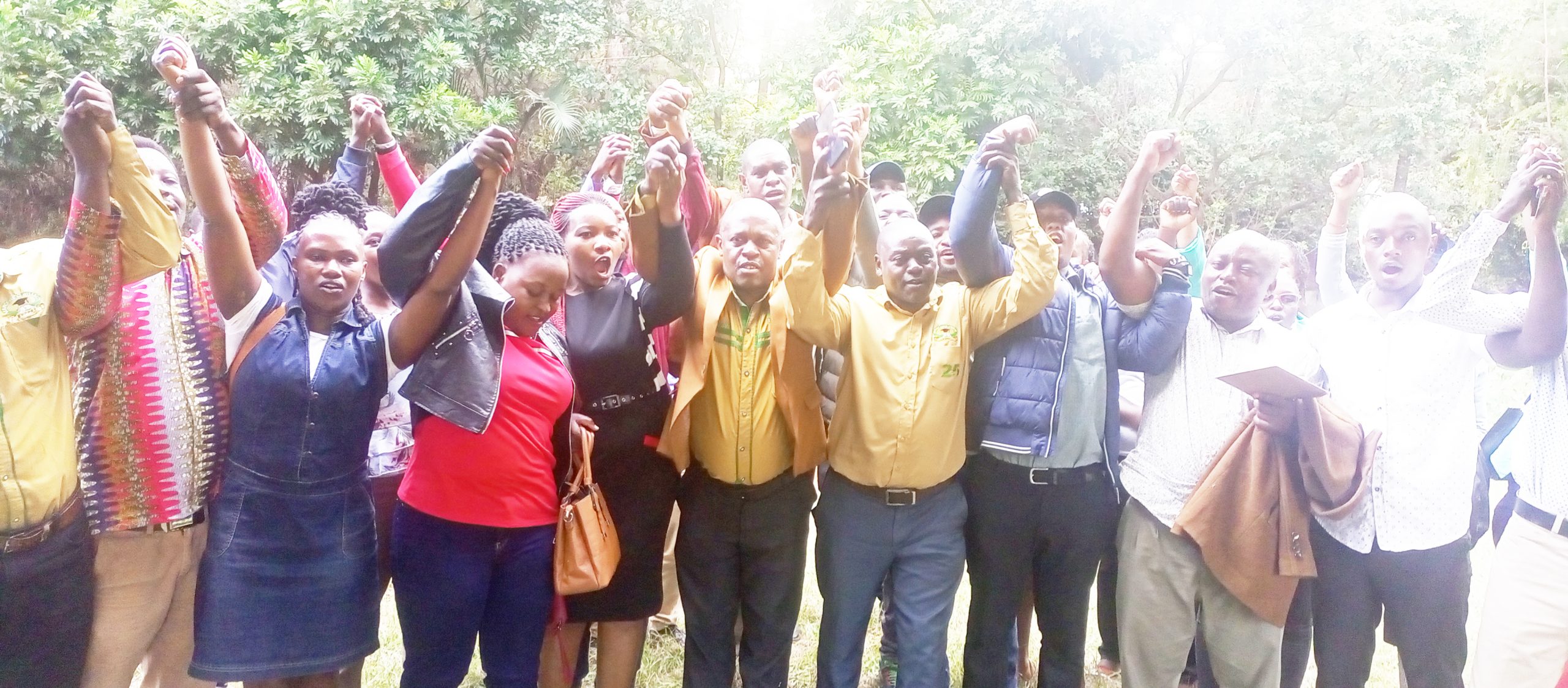© Victor Ochieng’
Last week, I visited my home county to attend to what a scribe of my calibre would describe as a sacrosanct assignment. Ms. Audrey Monica Odhiambo, the pious Principal of Ugunja Technical and Training College invited me to address diploma, artisan and craft certificate students that grace the Siaya-based nascent tertiary institution.
Ideally, I treasured the opportunity because God enabled me to act as a ray of light and a flicker of hope to the sea of students who listened to my presentation I themed: Position Yourself for Employment and Entrepreneurship.
In the whole scheme of things, there is a scent of hope as brought out in Job 14:7: There is hope for a tree, if it is cut down, that it will sprout again. Its tender shoots will not cease.
Just to be blunt about it: As someone who has fascinating facts about KCSE performance, I am aware that only a small section of students garner basic university entry requirement, which happens to be a C+ (plus) of 46 points, spelt out by Kenya Universities and Colleges Central Placement Service (KUCCPS).
Somehow, the society glorifies university education to an extent that Form Fours who miss chances to matriculate directly into universities feel crest-fallen. Yet, KCSE is not the be-all and end-all. Life is not just about university degrees.
In actual sense, we should focus more on acquisition of core-competencies for the sake of self-reliance. We should be more concerned with skills enhancement and development; for that is what makes our graduates tick for world of work – job placement and employment that brings enjoyment.
Again, on these busy streets, you can meet a graduate with a First Class Honours degree in Mass and Communication but with paucity of basic skills in public speaking and writing. It is a sad state of affairs. I request you to join me in this trail of thought: Why do you think life is rife with graduates who look half-baked with dearth of correct competencies and skills? We can attribute this sad scenario to our obsession with acquiring university papers without dexterity and demonstration of abilities. No wonder, some schools cheat in KCSE so that they have a 100 per cent transition from high school to university level.
Personally, I support the brilliant thought of pushing students to get quality grades of C+ (plus) and above to help them get the highly coveted slots in universities. However, it should never escape our ken that in a typical class, there will be outliers like what we see in research. Therefore, sometimes, some will score A’s and B’s. As others score C’s and below. That is why when you hear of things like the results of a secondary school were withheld because getting a mean grade of A’s in KCSE cast aspersions on the whole exercise, this tells you that we live in a sick society in dire need of serious diagnosis and pronto treatment.
Somewhat, we should not make KCSE a do-or-die issue. Such that when students miss to garner good grades, which can possibly happen due to umpteen reasons, we consign KCSE failures to museums of forgotten history. Common knowledge should make us acknowledge that every failure needs hope and help to dream again. Those who write-off students whom the examination system called 8-4-4 churns out and brands as average and below average, should grab one of the titles of Robert T. Kiyosaki titled Why ‘A’ Students Work for ‘C’ Students and ‘B’ Students Work for the Government.
In that good book, the putative author contends that ‘A’ students are academics, ‘B’ students are bureaucrats, but ‘C’ students are capitalists. In most cases, the ‘C’ students often follow the entrepreneurial path: they carry the torch of capitalism, and create jobs by building businesses. ‘A’ and ‘B’ students matriculate into Ivy-League universities, and graduate with stellar MBAs. However, ironically, some ascend the corporate ladder as employees, not employers per se. The most ambitious ones become CEOs of blue-chip companies sometimes started by those who scored average grades.
In this regard, we should support the provenance and proliferation of Technical and Vocational Education and Training Colleges (TVETs) like Ugunja TVC. Such tertiary institutions are pipes of hope because they are absorbing average and below average students to pursue diploma, artisan and craft certificates.
In addition, the TVET students are eligible to the generous grant dished out by Higher Education Loans Board (HELB). This help from HELB aids them to defray part of the college expenses. Diploma students get Ksh. 90,000 at the end of the three-year study, which means they are entitled to Ksh. 30,000 per year. Consequently, Artisan and Craft certificate students get Ksh. 30,000 per year, compounding to Ksh. 60,000 in the two-year peregrination in college.
Somewhat, with this support from the government, my contrite heart skips a beat when I meet young people crowded in frustration corners but void and devoid of any skill because they have refused to enroll in TVETs in their neck-of-the-woods. Without any competency or skill, their hands remain empty. Yet, in every situation, when God intends to help humankind, He poses the question: What is in your hands?
Finally, young people who wish to access success in these dreary and difficult days, need conglomeration of skills. In Proverbs 22:29 Solomon asks the quality question, then gives an appropriate response: “Do you see a man skillful in his business? He will stand before kings. He will not stand before mean and obscure men.”
This is the conclusion of the matter: College students need technical or hard skills. They also need soft skills. Moreover, they need employability skills, transferable skills, life skills and 21st century skills. Hard skills or technical skills will put certificates in their hands. Soft skills will complement their Intelligence Quotient (IQ) and Emotional Quotient (EQ). Transferable skills will make them malleable, flexible and adaptable professionals who can work well in any terrain. Life skills will make them attain personal-discovery and self-mastery. While 21st century skills will make them relevant in these climes and times. For in a book titled Beyond Intelligence, Wale Akinyemi urges us to blend intelligence with relevance. He argues: “Stone Age did not end because the world ran out of stones, but Stone Age ended because the level of thinking had out-paced the use of stones.”
The writer rolls out talks and training programmes for university and college students that revolve around First-Years’ Orientation, Skills Enhancement and Development, Addressing Graduation and Commencement Ceremonies and Student Leadership Training.
vochieng.90@gmail.com. 0704420232





